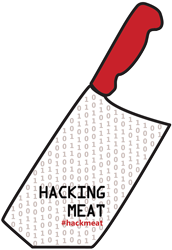
Hacking Meat is an online conversation exploring how can information and technology be used to hack (or reimagine) a more sustainable, profitable and healthy future of meat. Join the conversation and share your ideas or product requests in the comments, on Twitter using #hackmeat, on Facebook or at the Hack//Meat hackathon happening December 7-9 in NYC.
Guest post by Justin Massa and Ben Stanley of Food Genius
A 2011 survey by Impulse Research found that “28% of Americans can’t cook.” In our opinion, this number is actually quite a low estimate. As food researchers, we regularly hear in consumer interviews how people are frustrated that they can’t cook, they are intimidated by food, or they feel guilty about not providing for their family the way they were provided for growing up.
But Food Genius would also argue that consumers are not the only ones at fault. Food producers have become increasingly separated from the people eating the food they manufacturer through the addition of mass markets, distributors, and brokers. People treat food differently. It’s not that they don’t cook, it’s that they cook differently; and food suppliers don’t have an understanding of what has changed.
Web Search Interest: “How to cook” United States, 2004-present, Google Trends
Our cooking habits are changing for an array of reasons: people don’t want to clean, they don’t have time, and they simple don’t understand what to do. In parallel to this trend, we are seeing a decline in meat consumption in the US. There are a variety of reasons for this too, primarily that we Americans just eat too much meat and people are starting to balance their diets better.
At the same time, there is a divergent trend at home and in restaurants where people are doing innovative preparations of meat. The things that are exciting about meat in restaurants (and more adventurous home cooking) is precisely what’s scary for the average home cook – sous vide, “meat glue”, new butchering techniques, using offal, etc.
We believe that these divergent trends – less and less cooking at home, lower consumption of meat, and increasing innovation around meat – offer an exciting opportunity for the meat industry to focus on value-added products. Consumers are moving away from the plain grilled chicken and sautéed pork chops. They are going to restaurants and eating dishes like pulled pork sliders with varieties of smokes and rubs or perfectly cooked sous vide short ribs.
Costco may be the first to truly capitalize on this trend, offering pre-cooked meats fresh or refrigerated in house. Look at companies like Harris Ranch or Sadler’s Smokehouse, who offer value-added and raw products that give the consumer high quality and easy-to-serve meals. You can see a little bit of this in the many grocery story today; products like chicken / apple / gouda sausage or roasted garlic / gruyere sausage are easier and easier to find. This type of innovation should extend into all meat lines and be directly informed by data.
The meat industry needs to use data not to grow their business, but to transform their business into something that adds more value with less costs, to understand these new ways of cooking and to understand what the dishes are trending. Their focus should be on learning why people aren’t making those things at home and translate that to the meat counter to make it easier for the consumer to prepare.
From leveraging menu tracking data to engaging their customers through social media, the meat industry has an array of technology-based tools to help them understand what exciting innovations they should bring to mass market and where are the best places to launch those innovations.
These data tools may not be specific to the meat industry now, but its only because the meat industry has been slow to engage with these newer technologies. In fact, the food industry as a whole has a need for more tools like this. Food Genius and our first product are founded on an overwhelming demand from industry experts to understand the foods consumers are interacting with.
Consumers are opening the door for the meat industry to move away from high supply, cheap commodity-priced raw ingredients to low supply, high cost, value added products. Meat producers should view innovative restaurant chefs and home cooks as their test kitchens. Rather than go down a rabbit hole of creative products that aren’t tested in the market, they should focus on leveraging data to understand and commercialize innovations that are emerging from those who do it best. That data is being generated on the Internet right this second.
 Justin Massa, founder and CEO of Food Genius
Justin Massa, founder and CEO of Food Genius
Justin’s work centers around new technologies, data, and food. He is the founder and CEO of Food Genius, a dining out data company that offers the food industry best-in-class menu and consumer behavior data products. Food Genius was part of the Summer 2011 class of Excelerate Labs, was the first-ever “Startup in Residence” at IDEO‘s Chicago studio, and was the first company to “graduate” from 1871. In September 2012, Justin was named to the Crain’s Chicago Business Tech 50 list.
 Ben Stanley, co-founder and VP of Product Development at Food Genius
Ben Stanley, co-founder and VP of Product Development at Food Genius
Benjamin T. Stanley is tech-curious research and development chef and VP of Product Development at Food Genius. He is passionate about the design of new food products from identifying business strategies, and concepts; to scaling formulas for mass production and creating marketing content to interact with consumers. Benjamin is happy to call Chicago his home.


